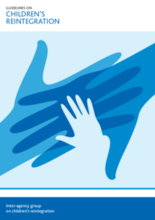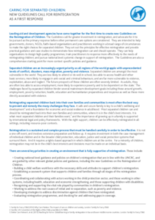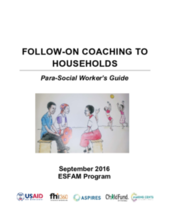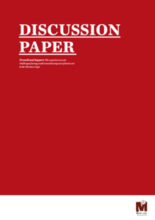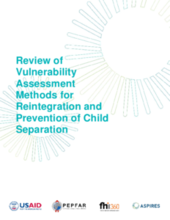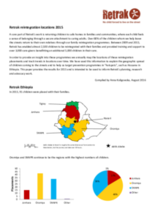Displaying 791 - 800 of 992
These Guidelines build on several existing care policies, including the UN Convention on the Rights of the Child.
This document is a statement in support of the Guidelines on Children's Reintegration.
This Coaching Guide supports Para-Social Workers (PSWs) to provide households with targeted coaching to increase the adoption of new skills, practices, and knowledge key to child and family wellbeing.
This paper initiates discussion by calling on Child and Youth Care (CYCCs) to offer transitional support to youth leaving care. It also intends to document and share information on new ways for youth to successfully transition out of care.
This is a webinar that occurred on August 19 through the RISE Learning Network.
In this report, which has been prepared to inform planning in the USAID-funded ASPIRES project, the authors present a review of some of the existing tools used to assess vulnerability to either separation or negative child well-being outcomes with attention to economic security for the purposes of targeting households for program participation and matching them to appropriate interventions.
Each year Retrak maps the locations of family reintegration placements and tracks trends in locations over time. They have used this information to help them understand the geographic spread of children coming to the streets and to target prevention programmes on ‘’hotspots’’- places from which many children migrate to the streets.
This chapter analyses how social identity influences children’s recruitment into armed conflict and their reintegration.
This article highlights effective approaches to staying connected with (i.e., recruiting, relocating, and retaining) youth participants who have transitioned out of foster care in longitudinal research studies.
This paper aims to address the role of future expectations among young people leaving care in the context of resilience theory and emerging adulthood theory.

